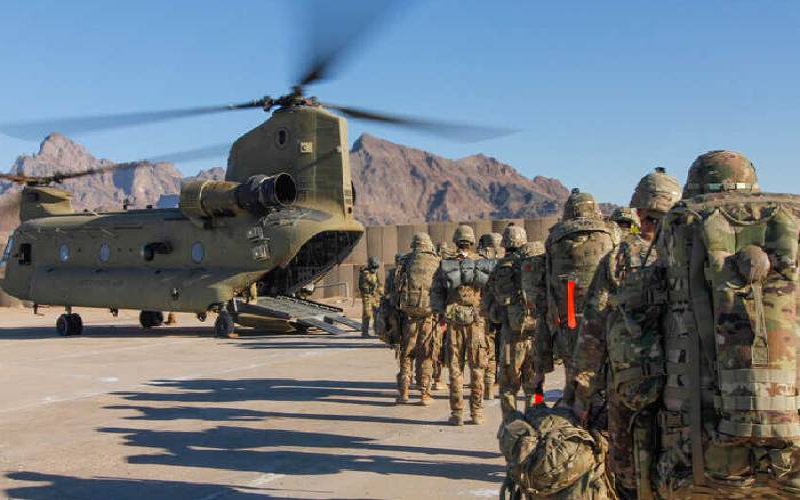×
The Standard e-Paper
Truth Without Fear

US soldiers load onto a Chinook helicopter to head out on a mission. [Reuters]
Former Pakistan President Asif Ali Zardari has warned that the country Pakistan could face a dangerous situation emerging in Afghanistan because of the ongoing Taliban offensive.